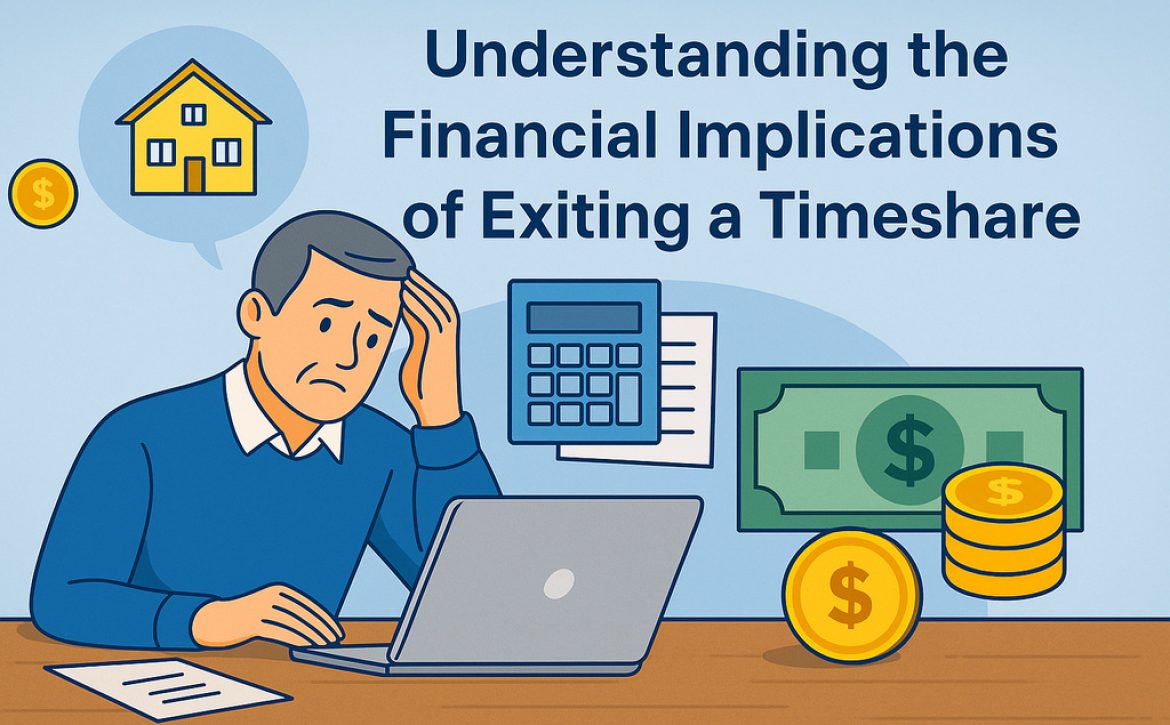Understanding the Financial Implications of Exiting a Timeshare


Exiting a timeshare can bring a sense of relief—but it can also carry significant financial consequences. Whether you’re dealing with rising maintenance fees, limited usage, or simply a change in lifestyle, it’s important to understand the full financial picture before making any decisions. Getting out of a timeshare is rarely free, and navigating the process wisely can help you avoid unexpected costs and legal pitfalls.
This article breaks down the key financial implications of timeshare exit, helping you make informed decisions that align with your long-term financial goals.



Some timeshare companies offer voluntary surrender or “deed-back” programs for owners who no longer wish to keep their timeshare. However, even these seemingly cooperative options often come with exit fees or administrative charges.
These fees can range from a few hundred to a few thousand dollars depending on the developer and the value of the property. They cover paperwork processing, legal documentation, and title transfer.
Before you can exit a timeshare, you will likely need to bring your account up to date. This includes paying any:
These costs are often non-negotiable. Failure to pay them may delay or derail your exit process—and in some cases, they may be turned over to collections or reflected on your credit report.
If you’re working with a timeshare exit company or attorney, you will likely pay legal or consulting fees. These fees can vary widely depending on the complexity of your contract and the firm’s reputation.
For reputable companies, expect:
Always read the fine print, and avoid companies that demand large upfront fees or make exaggerated promises.
If you stop paying your timeshare fees or walk away from your obligation without a formal cancellation, the consequences could show up on your credit report. Foreclosure or collections may remain on your report for seven years, affecting your ability to get loans, credit cards, or housing.
To protect your credit, pursue a formal and documented exit—especially if you have a timeshare mortgage or unpaid balance.
Always read the fine print, and avoid companies that demand large upfront fees or make exaggerated promises.
In some cases, exiting a timeshare—especially through debt forgiveness—can result in a taxable event. The IRS may view the forgiven amount as income, and you could receive a Form 1099-C for cancelled debt.
Consult a tax professional to understand whether your timeshare exit will impact your tax liability for the current year.
Many timeshare owners believe they are investing in real estate. Unfortunately, timeshares rarely appreciate in value. When exiting, don’t expect to recover your original purchase price—especially in a resale market flooded with low or zero-dollar listings.
Even giving away a timeshare may require covering the transfer fees and ongoing dues for the recipient. Be realistic about the sunk costs and focus on reducing future liabilities rather than recouping past expenses.
Exiting a timeshare can bring peace of mind, but it often comes with financial strings attached. Understanding the full range of costs—fees, penalties, credit risks, and taxes—can help you prepare for a clean and successful break.
Whether you go through the developer, hire a professional, or pursue legal action, make sure your path forward is documented, transparent, and financially sound.
Knowledge is power—especially when it comes to protecting your wallet and future from the hidden costs of timeshare ownership.
